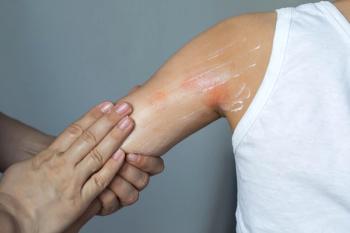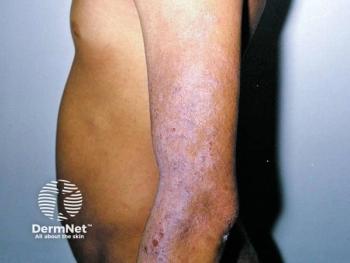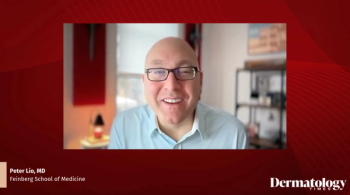
HPV Vaccination: Clinical Issues
Gardasil (Merck) is made of virus-like particles - copies of the capsids or the outer shell of the virus; there is no DNA - therefore, it is impossible to become infected with HPV through vaccination. The vaccine stimulates an antibody response to that outer coating of the virus, and is 100 percent protective if administered prior to exposure to the four strains of HPV that it protects against.
Gardasail is available only in single-dose vials and pre-loaded syringes, which must be refrigerated and kept in their cardboard containers until use. Heat and sunlight degrade the vaccine.
Older women
Dr. Sattler was equally quick to state, "We do not endorse off-label use." The FDA prohibits company promotion of off-label use of a product. Merck is looking to the ongoing trials to expand the label indication.
Stephen K. Tyring, M.D., Ph.D., has vaccinated more than a hundred patients with Gardasil as an investigator in the trials. He is a professor of dermatology and microbiology at the University of Texas Health Science Center, Houston.
"There is nothing wrong and everything right about vaccinating a woman who is older than what the guidelines recommend," he says. "So long as she does not have cervical cancer she can benefit. Even if she has picked up one, two or three of the HPV types, there still may be benefit from the vaccine."
Charles Wibbelsman, M.D., with Kaiser Permanente in San Francisco says off-label use of the vaccine in older women is a matter of clinical judgment. He expects that the HMO will honor the individual physician's clinical judgment.
Vaccinating men
John Schiller, Ph.D., a researcher at the National Cancer Institute, conducted much of the basic research that led to development of an HPV vaccine. He says the Food and Drug Administration is being cautious with the label indication after an experience in 2000 when a herpes vaccine provided protection only in women and not in men. The agency wants to see the data.
"Theoretically, it was possible that the vaccine could protect mucosal surfaces of the vagina because they are bathed with mucus that contains antibodies, but it might not protect against infection of regular cornified skin," he explains.
"But now, with the most recent data, Merck has shown that in women, it protects their genital cornified skin from external genital warts, so there is no reason to expect that it won't similarly protect men and their cornified skin."
In a commentary in the August issue of Obstetrics & Gynecology, Bradley J. Monk, M.D., called for the vaccination of boys as well as girls.
"Gender and occupationally focused vaccination campaigns only result in ineffective eradication of disease," wrote the professor of gynecologic oncology at the University of California, Irvine. He cited as strategic failures the limited use of hepatitis B vaccine and gender-specific rubella vaccination in the United Kingdom.
"Anal cancer is relatively rare in males, except in gay men, where we see increasing numbers are getting anal cancer," says Dr. Tyring. "If a gay man asked me if he should get the vaccine, I would say, 'Yes, indeed, there are good reasons why you should consider getting it.'"
Newsletter
Like what you’re reading? Subscribe to Dermatology Times for weekly updates on therapies, innovations, and real-world practice tips.











